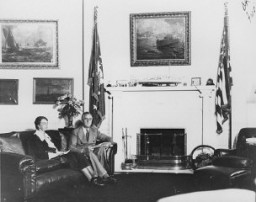You searched for: 批发产品投资理财源码快速搭建【TG电报:@EK7676】平台包网搭建批发产品投资理财源码快速搭建【TG电报:@EK7676】平台包网搭建41Q4ezCiLa
<< Previous | Displaying results 41-50 of 57 for "批发产品投资理财源码快速搭建【TG电报:@EK7676】平台包网搭建批发产品投资理财源码快速搭建【TG电报:@EK7676】平台包网搭建41Q4ezCiLa" | Next >>
-
Isaac Weiner
ID CardIsaac was born to a religious Jewish family in the Ukrainian village of Vachnovka. In 1912 he married Machla Sandler. Isaac had worked as a cattle driver, driving herds from markets as far away as Warsaw, but in 1929, hoping to find new employment, Isaac moved the family to the nearby city of Vinnitsa, which by then was part of the Soviet Union. Isaac and Machla raised six children. 1933-39: In the early 1930s a severe famine swept the Ukraine. Isaac's family survived, but times were hard. Isaac found…
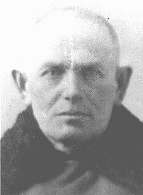
-
Margit Morawetz
ID CardWhen Margit was a baby, her family moved from Austria to Prague, Czechoslovakia. Her father was a banker from a religious Jewish family in Bohemia and her mother came from a Viennese family of Jewish origin. Margit knew many languages: Czech, French, English and German, which she spoke with her family. 1933-39: In 1938, when Margit was 16, attacks on Jews in central Europe escalated and her parents decided she should leave. She left secondary school in Prague and went to Paris, where she studied…
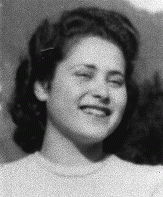
-
Morris Kornberg
ID CardMorris was the youngest of six children born to a religious Jewish family in Przedborz, a south central Polish town with a large Jewish population. Morris' family owned a business that supplied nearby factories with raw metal materials. 1933-39: When Germany invaded Poland in early September 1939 Morris and his family fled to the woods. They returned a few days later; most of the town had been burned down. The Nazis set up a ghetto and ordered everyone age 13 to 50 to report for work details. His family…
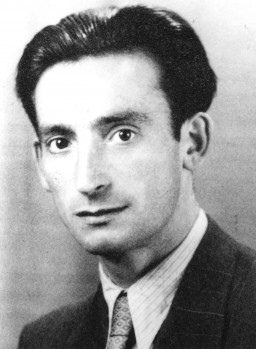
-
Nina Szuster
ID CardNina was born to a Jewish family in the Polish town of Rokitnoye. Her father built ovens. Nina's family was very diverse: her father was an Orthodox Jew, her brother was a militant Zionist, and her mother leaned towards communism. Nina attended a Jewish school in the town. 1933-39: In September 1939 the Soviet Union invaded the eastern half of Poland. All businesses were quickly nationalized and property was seized. The Soviets distributed most of the town's wealth to the poor in the area. Nina's mother…
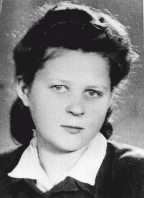
-
Machla Weiner
ID CardMachla was one of six children born to the Sandlers, a Jewish family in the Ukrainian village of Vachnovka. In 1912 Machla married Isaac Weiner, and by the late 1920s they had four sons and two daughters. Their oldest son died of scarlet fever in 1927. Hoping to find employment, Machla's husband moved the family in 1929 to the nearby city of Vinnitsa, which by then was part of the Soviet Union. 1933-39: In the early 1930s a severe famine swept the area. Machla's family survived, but times were hard. Isaac…
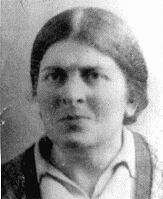
-
Rochelle Blackman Slivka describes the formation of the Vilna ghetto
Oral HistoryThe Germans occupied Vilna in June 1941. In October, Rochelle and her family were confined to the Vilna ghetto, where her mother died. Her father, a Jewish council member, was killed in a camp in Estonia. When the ghetto was liquidated in 1943, Rochelle and her sister were deported--first to the Kaiserwald camp in Latvia and later to Stutthof, near Danzig. In 1945, on the sixth week of a death march that forced the sisters to protect their bare feet with rags, the Soviet army liberated them.
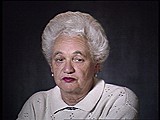
-
Mieczyslaw Madejski describes underground work in the early 1940s
Oral HistoryMieczyslaw and his family were not Jewish. When Germany invaded Poland, Mieczyslaw was working for an organization formed for self-defense against German bombings. Later, he worked for the Polish underground group ZWZ (Zwiazek Walki Zbrojnej; Union for Armed Struggle), which became the AK (Armia Krajowa; Home Army). In 1943, he was conscripted for forced labor at a BMW plant in Warsaw. He escaped, and participated in the Warsaw Polish uprising in August 1944. After the uprising, he left Warsaw and went…
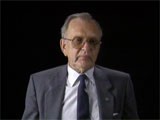
-
Protocols of the Elders of Zion: Key Dates
ArticleExplore a timeline of key events related to the Protocols of the Elders of Zion, the most notorious and widely distributed antisemitic publication of modern times.
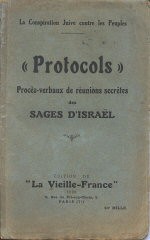
-
Romania
ArticleEven before joining the Axis alliance in 1940, Romania had a history of antisemitic persecution. Learn more about Romania before and during World War II.
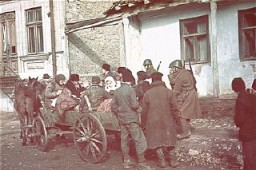
-
Eleanor Roosevelt
ArticleEleanor Roosevelt, longest serving First Lady in US history, used her social and political influence to intervene on behalf of refugees before and during WWII.
